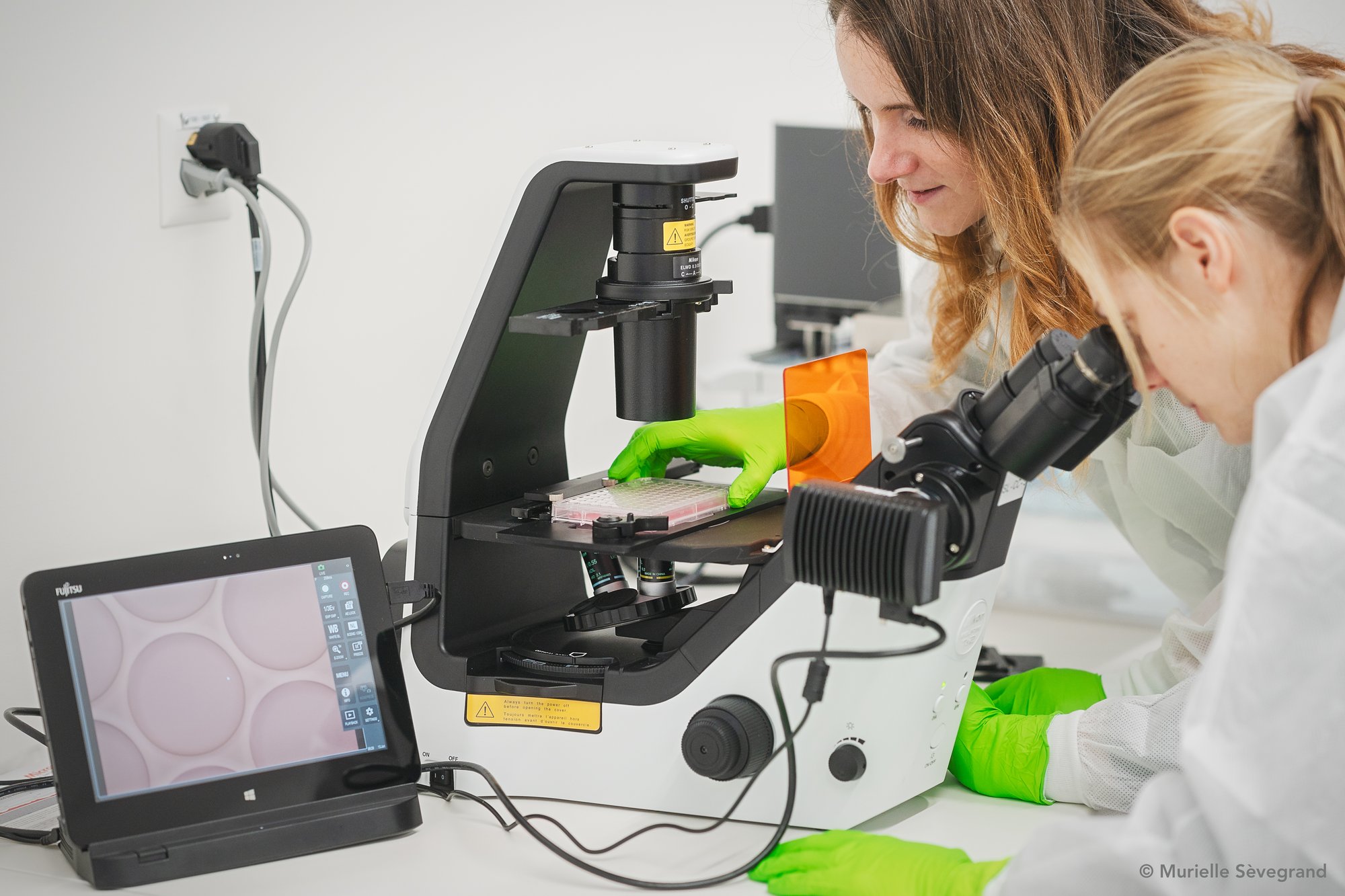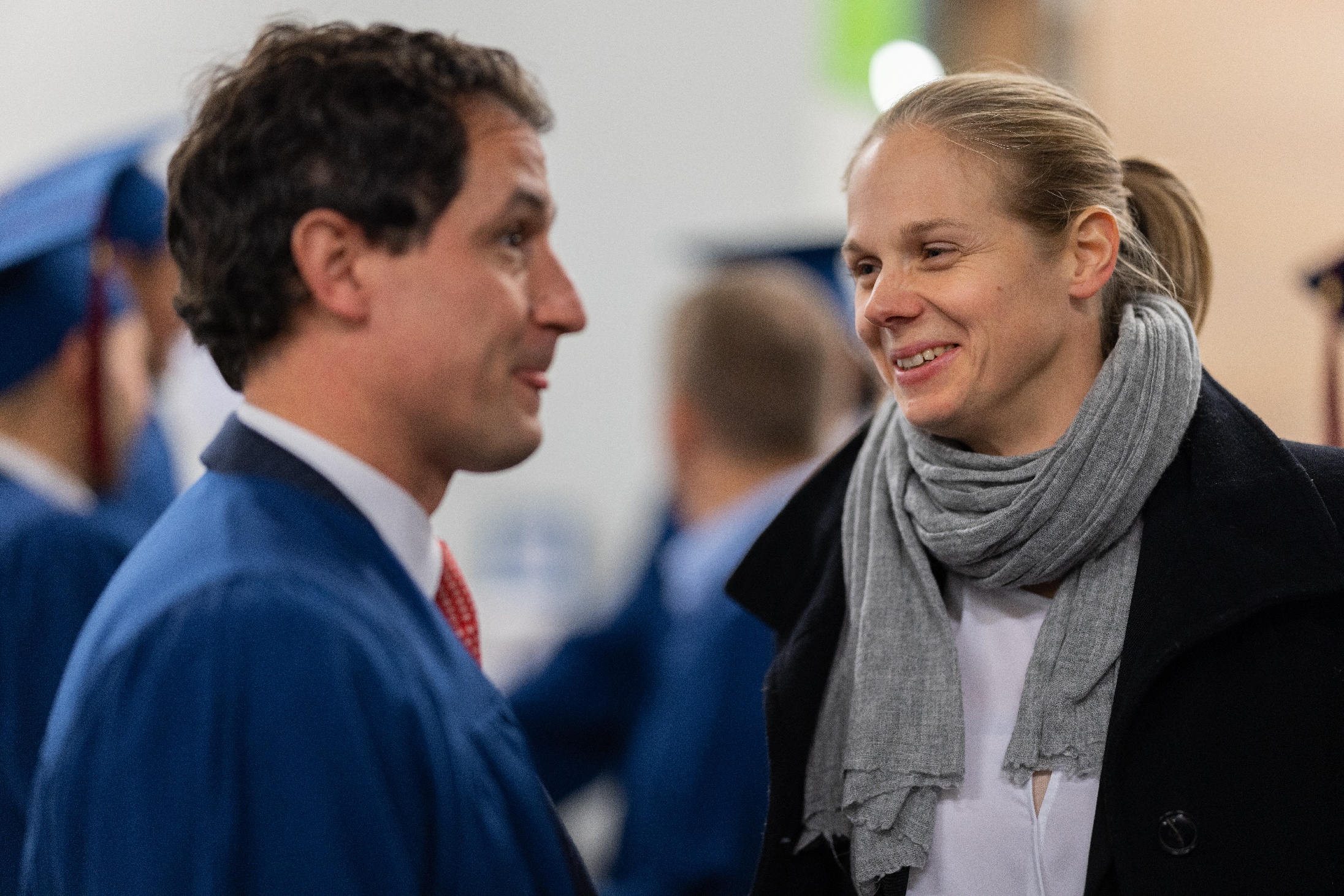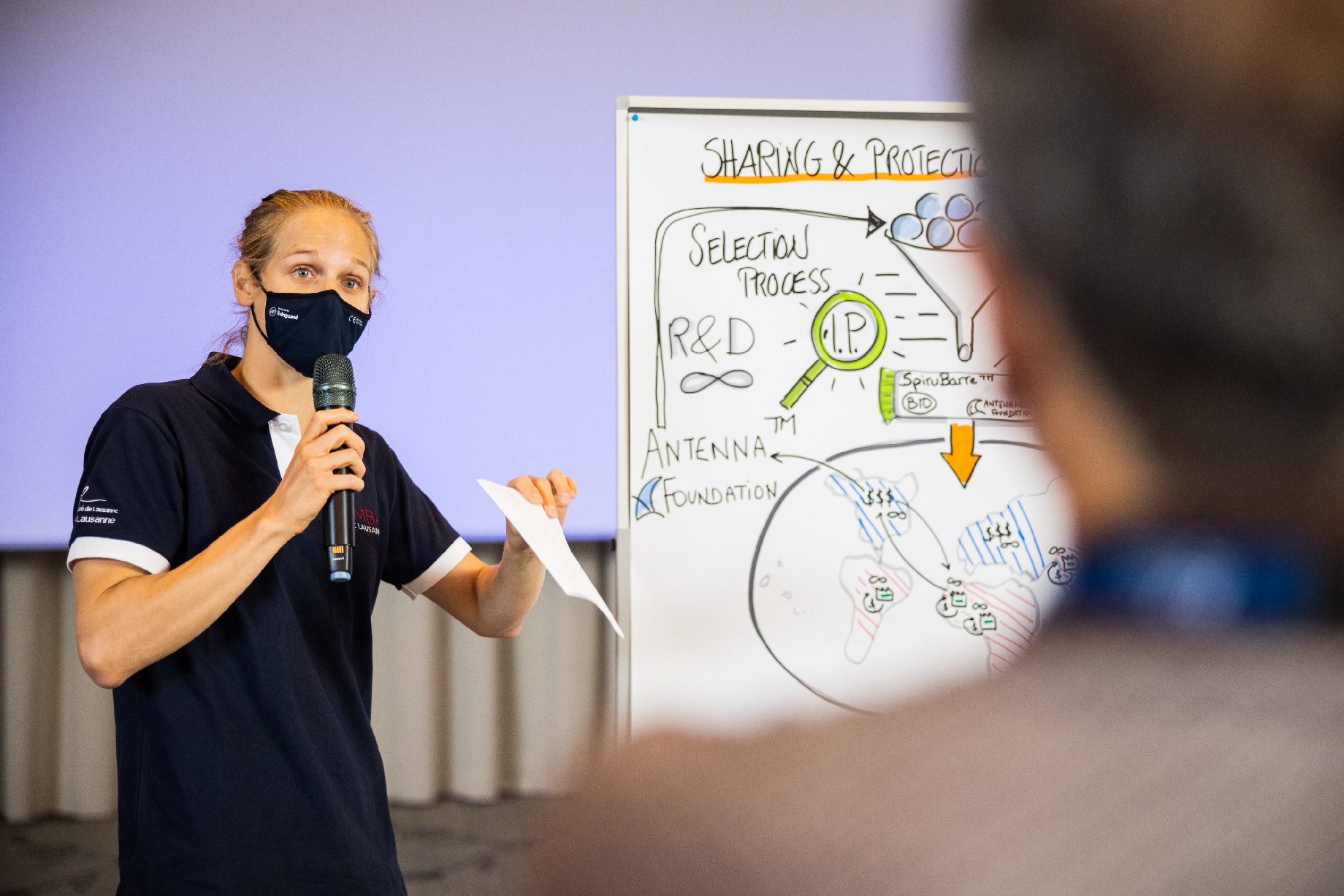At HEC Lausanne Executive MBA, we celebrate stories of entrepreneurs and professionals who positively impact their companies and industries through their EMBA training and individual projects. Each year, we award a prize for the most impactful Strategy Consulting Project (SCP). In 2022, Nathalie Brandenberg, co-founder of an emerging Bio/MedTech startup, received this honor.

Nathalie Brandenberg is a 35-year-old bioengineer and entrepreneur who has already made a significant impact in the field of healthcare. During her PhD at EPFL, she and her colleague, Sylke Hoehnel, developed a novel technique for culturing stem cells outside of the body. This breakthrough paved the way for future testing of medications for chronically ill patients and even the potential use of stem cell-generated tissue for transplants and the regeneration of damaged organs.
In 2016, the two scientists were recognized for their achievements by being featured in Forbes 30 under 30 Europe. The same year, Nathalie and Sylke to established their own company, SUN bioscience SA.
Nathalie joined the HEC Lausanne Executive MBA in August 2021. Throughout the programme, she has distinguished herself by her friendliness, her joie de vivre but also her academic excellence. It is thanks to her outstanding performance that our 2022 alumna received the Strategy & Sustainability Award for her Strategy Consulting Project (SCP).

The SCP is an individual project that should address a strategic question within an organisation. Participants are asked to act as in-house consultants by applying their newly acquired skills and knowledge.
As part of her SCP, tour 2022 Alumna has brilliantly played this role within the startup she co-founded. It is this entrepreneurial and educational journey that she shares with us in the following interview:
We have recently shared multiple news on the success of SUN bioscience the start-up you co-founded. It is within this same company that you have chosen to conduct your SCP project. Can you explain in a few words, what is SUN bioscience value proposition? and maybe tell us more about your spin-off (DOPPL)?
SUN bioscience is setting the standard for organoid applications in the pharmaceutical industry and clinics world-wide enabling next-generation personalized drug development. Organoids are small lab-grown mini-organs from living patients. They are able to replicate human biology and disease in the laboratory with unprecedented accuracy and are revolutionising our healthcare system.
DOPPL, a spin-off of SUN bioscience, is implementing the worldwide first organoid automation and screening platform, that is validated to support clinical diagnostic services. Using the patient’s own cells, we find and fine-tune treatments that will be reimbursed by the health insurers. With it, we will ascertain that a treatment will work before giving it to the patient.
The SCP is an individual project that should address a strategic question within an existing organisation or a new venture. What have you been working on more precisely? What strategic question have you been trying to answer?
The strategic question addressed in my SCP was to determine the economical viability of a tool we developed, which is: using patient-derived organoids to test drugs in clinical settings. Is it economically viable enough to launch new products and services, or even a new company? The focal point was to evaluate the solidity of the economics behind such test and determine if this could be used in negotiations with entities such as Swissmedic on potential prices and reimbursements.
As a startup co-founder and CEO, you face strategic issues all the time. What were the advantages of working on this specific question within your EMBA rather than by yourself?
Very good point. I selected that particular question precisely because it was the only area where we completely lacked any prior knowledge or resources, despite having gained expertise and welcomed new team members.
The EMBA courses, specifically the Health Technology Assessment and Health Economics courses, really provided us with the foundational tools to start addressing this strategic matter. Enrolling in the EMBA program allowed me to gain the necessary knowledge through coursework to address this strategic question, which seemed totally out of our scope prior to starting the program.
The goal of the SCP is also to give participants an opportunity to apply what they learn along the curriculum to a concrete case. What learning/tools were you able to put into practice?
I utilised several tools taught during the EMBA. For example, I started with multiple general frameworks from the strategy management course to analyze both external forces and the internal strengths of the company. I also used the same frameworks at the product level.
Then, I focused on tools more specific to the healthcare industry. For example, the health technology assessment, covered in detail in our Health Economics class, was applied to produce the potential proposition for the regulatory bodies and be used as a potential start for negotiation with them.
Several frameworks were pulled together to try to answer the chosen strategic question and also to decide whether to pursue or not the project at the company level.
The SCP project challenges you to act as an in-house consultant by applying your newly-acquired skills and competencies. How does it feel to have to act as a consultant in your own company?
[Laughs] That’s a funny question. In a way, I think it’s interesting and exciting because you can personally bring a completely new perception to the company that we never had before. On the other hand, because I’ve been working with my co-founders since evert, it’s difficult to gain the credibility that an actual external consultant would have. Even though I suggest things, if we were to pay for a consultant, they would be more likely to be believed[Laughs]. But, I still brought a new area of expertise to the company, which is what consultants do, even if establishing credibility and trust is definitely more challenging.

An SCP might bring significant added value to the company when successfully conducted. Have you yet measured or observed any tangible impact?
We don’t have concrete results from the analysis run in my SCP yet, as it’s just a first draft. However, I maintained contact with Prof. Marti and went to his group of Health economics, including his postdocs and PHDs, to present my work and seek feedback. That is very valuable because I can make continuous improvements to my proposition thanks to their input and additional expertise, which goes even further than what we saw in class. This includes, for example, considerations for differences between geographies and sensitivities of government and regulatory bodies.
We are really trying to refine the proposition before contacting regulatory bodies. Because, you know, it’s not like these institutions have too much time on their hands [Laughs].
As an EMBA student, you received the highest grade for your SCP project. As an entrepreneur how will your rate the result of this assignment?
Let’s say, I approached my SCP project like a start-up project [Laughs]. The result was clearly a prototype and therefore needs refinement. Even if it’s not usable immediately, as an entrepreneur, I believe it’s a good starting point for reaching out to different people and stakeholders. I am happy with this output.
Participants can decide whether they want to answer a strategic question within their company or in a different venture. What advice would you give to participants willing to do their SCP project in their own company/startup?
So I think there are a few elements to consider.
The first one is to make sure that you have access to the information you need to perform the project within the company. If so, I would not see any reason why to consult another company because in some ways you gain time. You don’t need to understand what the company does and it allows you to push a little bit further the concept when you are within a structure that you know. Now, if you don’t have access to what you would need, that’s a bit of a slippery slope, and you can get stuck pretty fast. So for sure, that has to be evaluated pretty early on. But I could see with the different people in the class that some managed to really go very deep in their structure and the ones that had new structures spent quite some time to, understand it that then limited the time available to go deeper.
It also depends on your personal perspective. If there are career opportunities within the structure, of course, it works really well. The SCP is a really great tool to show your capabilities to the management to grow within the structure. Now if you want to change your career path. It might be a good thing to do it externally to show your potential in the industry.
As an entrepreneur, doing your SCP internally is interesting as it kind of forces you to work on things that you always put to the next day. You have some sort of artificial deadline that forces you to do strategic tasks you would have done anyway in two years, but definitely not right now[Laughs].
We have already discussed the impact of your project on your company. How did your SCP project/ Executive MBA impact you as an entrepreneur and leader?
I must say, joining the EMBA was one of the best ideas I’ve ever had. Well, to be honest, it was not even my idea. It was suggested by our CFO and a contact in our network working at a big pharma company connected me to Jeff (NDLR: Jeffrey Petty, Director Academic). The support of my co-founder and the meeting with Jeff further motivated me. Honestly, the EMBA was very fulfilling because I had been working in a closed ecosystem for a decade and it gave me access to new concepts, frameworks, and a deeper understanding of the economy and the industry.
To me, the best part was meeting the various profiles enrolled in the class and especially in the healthcare management track, from research to clinical trials to patient outreach to regulation. There were candidates from the whole pharma value chain, so I could fully understand how industry works. I mean, I knew how research worked but I gained a real understanding of the drug development process from the clinical trials to the patient outreach and regulatory.
This allowed me to understand the restrictions, challenges, and constraints in the drug development process in a way I could never have before. This was awesome,
Overall, the EMBA has opened up many opportunities and increased my credibility, when discussing with partners. And also a bit more, let’s say skin on the bone, for being credible in general. That’s very important for an entrepreneur. Being credible and having partners that see that you know what you’re talking about and that you understand the bits and pieces of their work. It was simply amazing.
Regarding the SCP, it allowed me to get closer to some professors. If you see an interesting profile or expert that you need for your activities, you can approach them and ask questions or request a meeting. This is beneficial in fostering relationships and building your network.
Additionally, the SCP helps to make the EMBA story complete by contextualizing different pieces of the module usually. The SCP takes a topic and focuses on one concept. The framework allows for the different pieces to fit together and make sense of the full picture. This contextualizing part is a very good thing about the EMBA program and provides a case study of how to pull different things from all the modules together. I found this to be very valuable as well.

Credits : Pictures by C.Strahm – L’Elixir
Labo picture by M.Sèvegrand